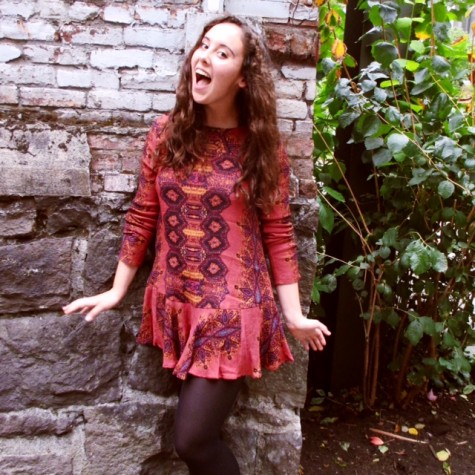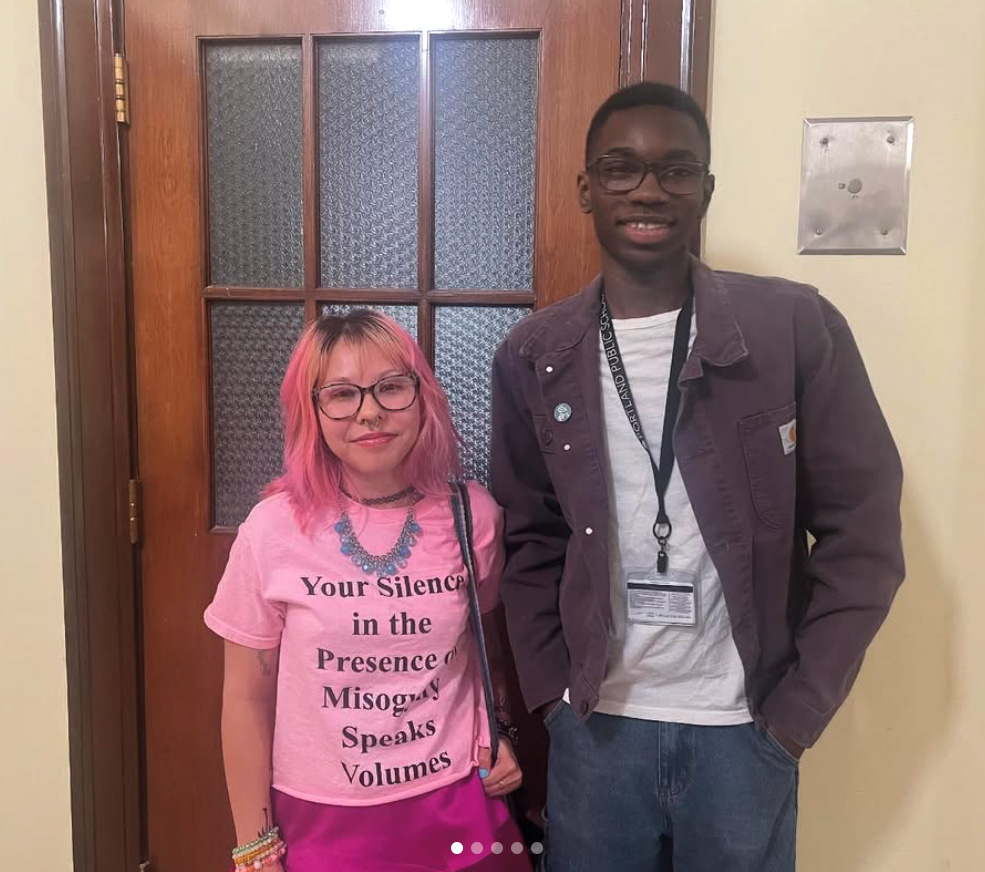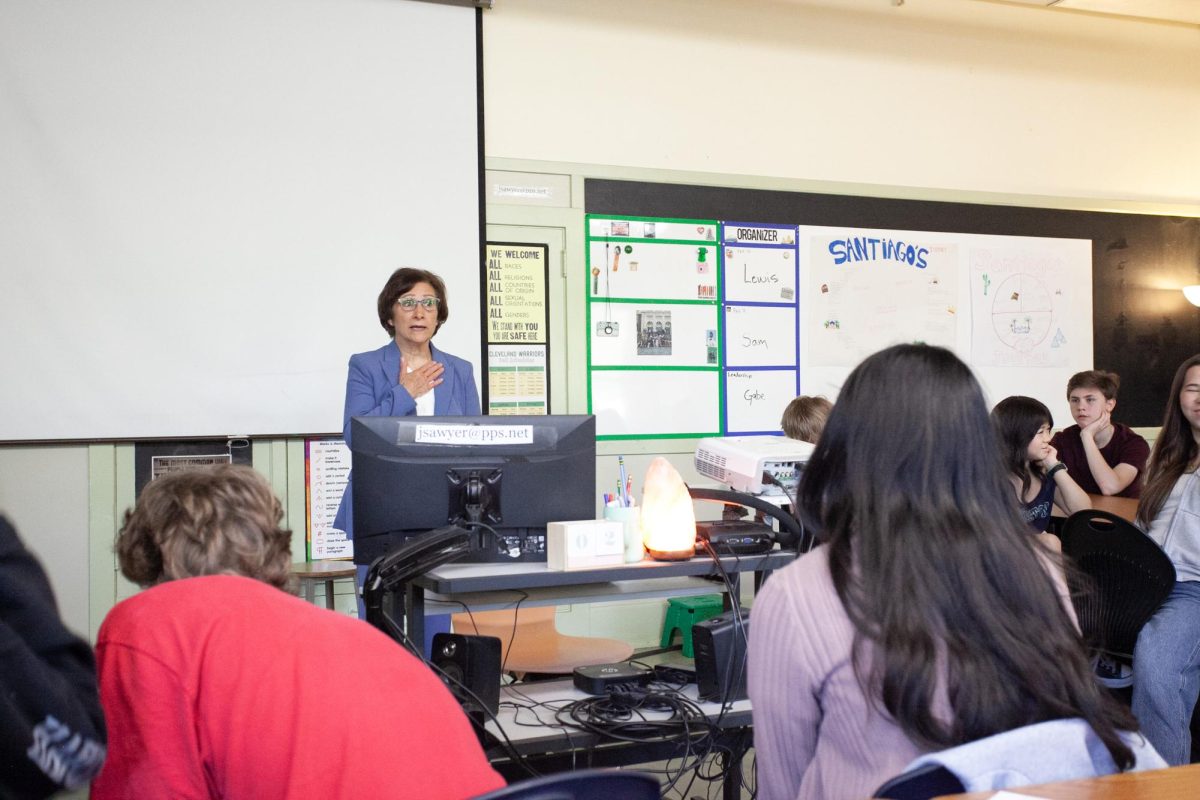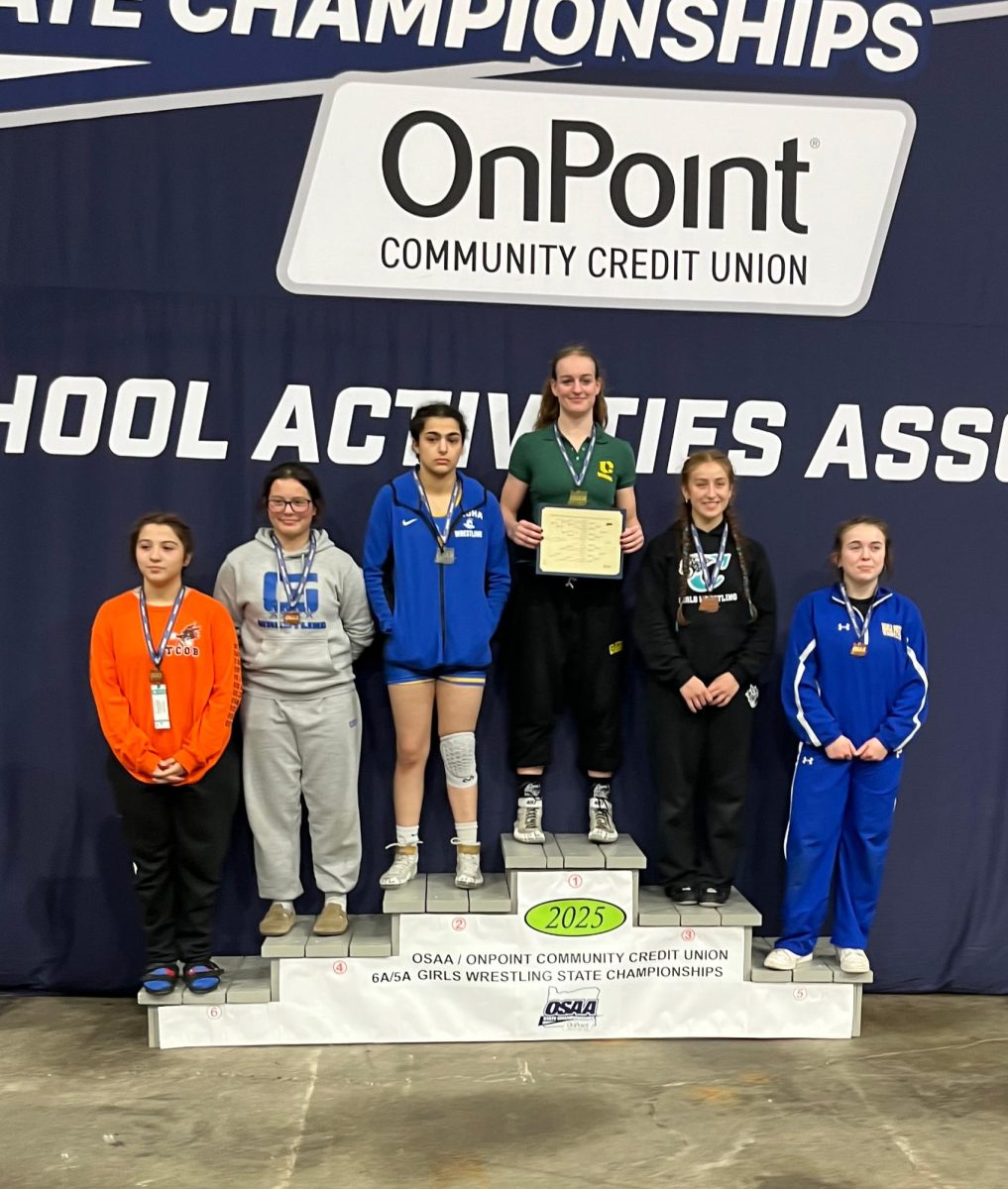It’s just an extra chromosome
October 11, 2015
October is National Down Syndrome Awareness month, a month dedicated to inclusion, advocacy, and a time to celebrate accomplishments and abilities. But another main goal of the month is raising awareness of what Down syndrome is and how it affects people.
Down syndrome is a chromosomal condition where a person has either an extra full or partial copy of chromosome 21. It is the most common chromosomal disorder, affecting over 400,000 people in the United States. The extra chromosome causes developmental delays as well as physical characteristics like low muscle tone.
But October is about more than the definition of Down syndrome, it’s about recognizing it in the community and making positive steps towards inclusion and advocacy. Kids with Down syndrome go to schools along with everyone else, they grow up to have jobs. They play sports, learn instruments, and have families. There are programs in place, like Special Olympics and specific Down syndrome organizations, to help people and families connected with Down syndrome be better equipped to be in society. But there are things that everyone can do, every single day.
A major issue facing people with Down syndrome or anyone is inclusion. Often people are alienated and put in separate schools, classrooms, and social groups. An example of alienation that is common in society is the use of the “R” word. In our school, this reporter hears the “R” word thrown around all the time as a substitute for stupid or lame. But the word is hurtful. Even if someone doesn’t find it offensive or isn’t specifically talking about people with developmental disabilities, just by using the word, they’re contributing to a culture of segregation and ignorance surrounding disabilities. People with developmental disabilities like Down syndrome have spoken out about how hurtful the “R” word is, the least we can do is respect their right to happiness.
Disabilities are a natural occurrence in the human population, and they make people unique. While disabilities are prominent, many people still don’t know much about what they are or how they can make a difference. That’s why October is a special month, to educate people about Down syndrome and start to make a change. In honor of National Down Syndrome Awareness month, this reporter encourages you to get involved in volunteer work that supports disabilities. Special Olympics Oregon has regional meets for fall sports throughout October and November that are perfect volunteering opportunities for high-schoolers. Visit soor.org and nwdsa.org for more information regarding volunteering. Happy October, Halloween, and Down Syndrome Awareness month!










